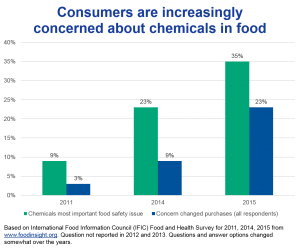Richard Denison, Ph.D., is a Lead Senior Scientist.
The lead article in this past Sunday’s New York Times is titled “With Trump Appointees, a Raft of Potential Conflicts and ‘No Transparency’.” It features several prominent examples of recent political appointments of industry representatives and industry lobbyists to key policy positions where they are now charged with or involved in reviewing or crafting the very same agency regulations and policies that were the focus of their paid private sector work just prior to their appointments.
Add EPA’s implementation of the newly amended Toxic Substances Control Act (TSCA) to the list.
Dr. Nancy Beck has just been appointed Principal Deputy Assistant Administrator in the Office of Chemical Safety and Pollution Prevention (OCSPP) at the Environmental Protection Agency (EPA), and reportedly started in that position on Monday, April 17, 2017. Dr. Beck is moving into her new position at EPA directly from her job as Senior Director, Regulatory Science Policy, Division of Regulatory & Technical Affairs at the American Chemistry Council (ACC), a position she has held since January, 2012. ACC is the main trade association for the chemicals industry, with a membership of more than 150 chemical companies, including such behemoths as BASF, Dow, DuPont and ExxonMobil.
In her new job, Dr. Beck is expected to play a key role in implementing the new reforms made to TSCA, including in critical decisions that EPA will be making literally any day now, many of them driven by firm statutory deadlines. These decisions will directly affect the financial interests of the companies represented by ACC. And they will involve deciding whether or not the agency should take positions for which Dr. Beck has advocated on behalf of her former employer, as recently as last month. Any reasonable person would see a conflict here, one sufficient to seriously question whose interests Dr. Beck will be representing in playing such a role in TSCA implementation. But as the Times article indicates, this Administration appears to have little concern about the fox guarding the henhouse.
Nor does this situation bode well for the prospect of creating a credible federal system capable of restoring public and market confidence in the safety of chemicals – which was the key reason that such strong bipartisan and stakeholder support gelled behind the major reforms made to TSCA just last June. Placing a key chemical industry player in a position where she will now have direct and major influence over the direction that reform will take raises serious new doubts about the industry’s claims that it supports providing EPA with stronger, independent authority and resources to vigorously establish the safety of chemicals in and entering commerce. Read More »











